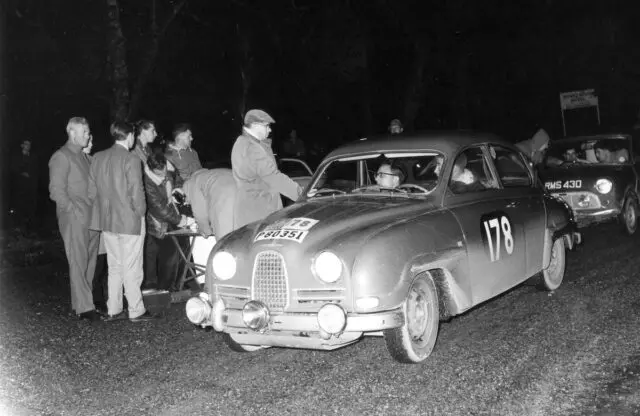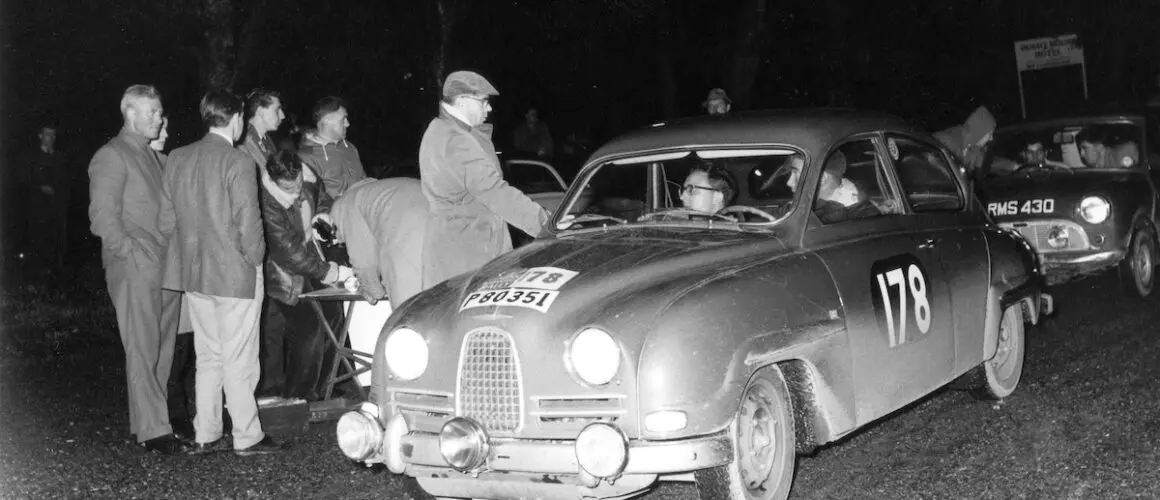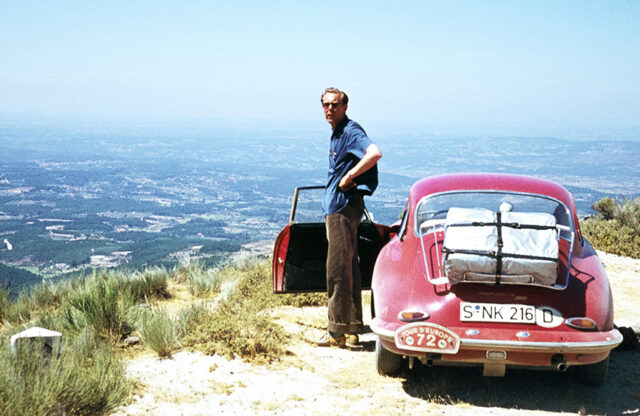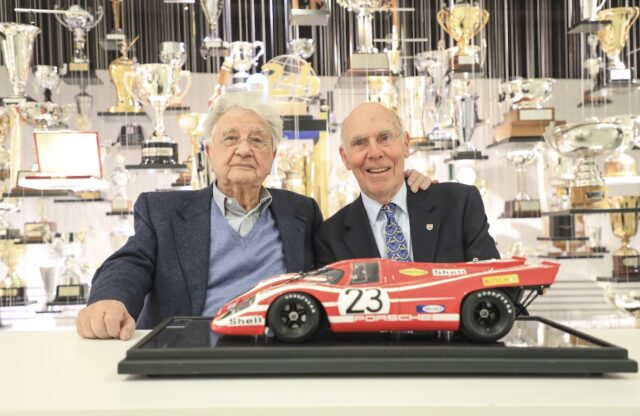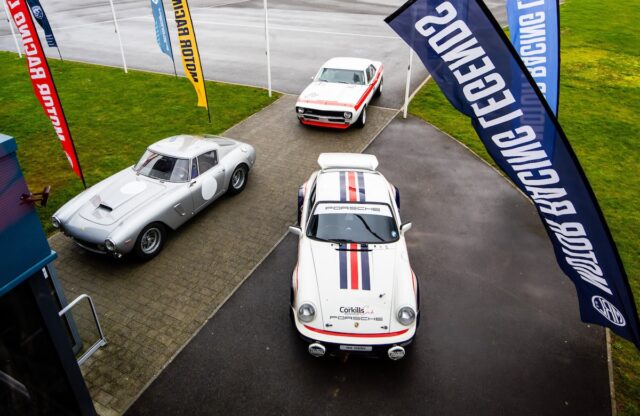Legendary team-manager Stuart Turner died on Monday September 8, 2025. He was 92. His career encompassed glory at the highest level of motor sport, variously as a competitor and as the boss of BMC’s Competitions Department during its 1960s heyday. He subsequently transformed Ford’s fortunes in rallying to the point that the company was the benchmark outfit for much of the 1970s.
Turner set the bar impossibly high, and his ability to tease open corporate purses led to many homologation specials that are now venerated. He was also a born raconteur who in his later years became an in-demand after-dinner speaker.
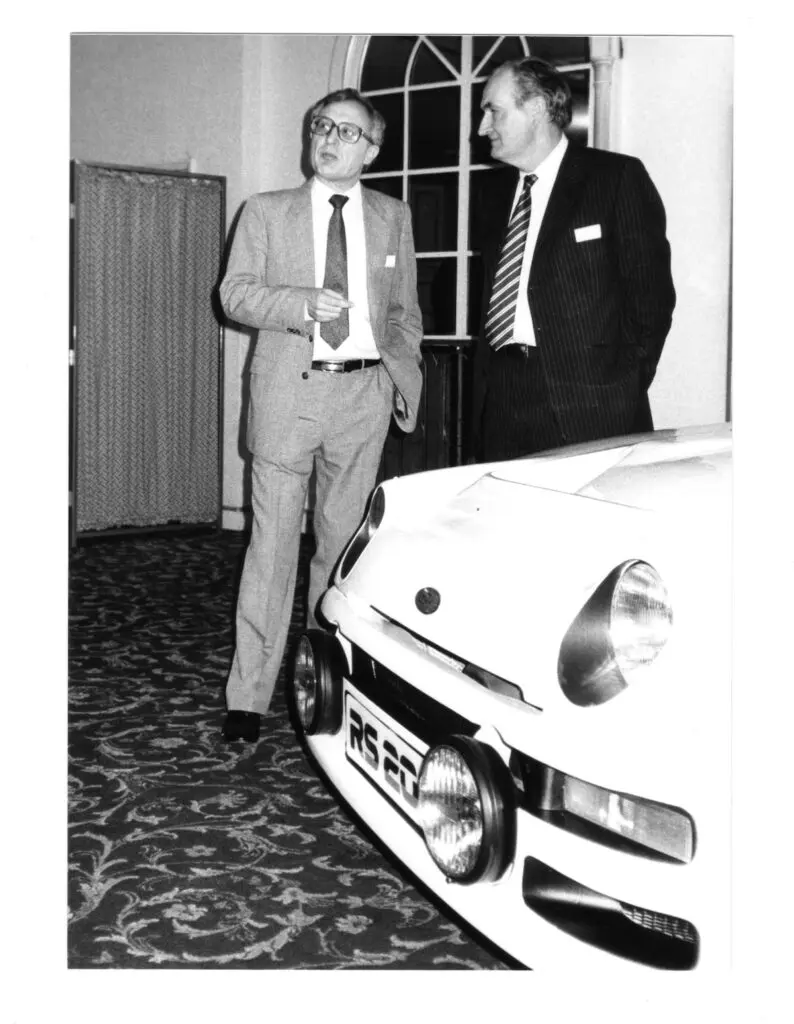
Given that Turner was such an over-achiever, it’s ironic that he had no youthful interest in motor sport. His first brush with competition hardware occurred while performing National Service during his late teens. He helped push one of Prince Bira’s ERAs, which was being tested at an airfield while he was on manoeuvres in Cornwall. His entrée into the sport occurred after his father remarried. Turner ended up with four stepsisters, one of whom had a boyfriend who was an amateur rally driver. Stuart tagged along one Sunday and discovered that he had an aptitude for navigation.
He and future brother-in-law John Bedson participated in other events thereafter, and Turner went on to win the Autosport championship for co-drivers from 1957-59. He also enjoyed success sitting alongside Ron Gouldbourn, placing second overall on the 1958 RAC Rally and also claiming class honours in that year’s Tulip Rally. His plans to become an accountant soon fell by the wayside. He upped sticks from his native Staffordshire and moved to London in early 1960 after accepting a position at Motoring News.
This was the same year that saw Turner team up with Works Saab man Erik Carlsson to win the RAC Rally. Stuart’s exploits alongside other stars of the day such at Pat Moss and David Seigle-Morris didn’t go unnoticed, and he was summoned to Abingdon for a meeting in September 1961. Marcus Chambers was leaving as team manager of the BMC Competitions Department. Might Turner be interested in taking over the hot seat? This was a period when rallying was becoming increasingly professional rather than a gentlemanly pursuit. Stuart realised this and was instrumental in speeding up the changes.
Among these was the hiring of a new wave of talent, not least Rauno Aaltonen and Timo Mäkinen. Turner also initiated meticulous testing programmes, event recces and the development of pace notes. Also, as he was wont to say: “If you’re going to join a Competitions Department, do so after the Mini Cooper has just been announced.” The Monte Carlo Rally in particular became a happy hunting ground, with Paddy Hopkirk and Henry Liddon claiming honours in 1964. The Mini would go on to win in 1965 and 1967, and was the moral winner in 1966 when the one-two-three finishing Works entries (plus the fourth-place Ford Lotus Cortina) were controversially excluded.
Turner departed BMC for a job at Castrol in 1967, only to be headhunted by Ford two years later. His first major event for the Blue Oval was the 1970 World Cup Rally, which ended with victory for Works driver Hannu Mikkola. It was a remarkable achievement given the amount of sleight-of-hand chicanery involved in financing the bid. Turner was then transferred to helm the Advanced Vehicles Operations department, the closure of which in 1974 being a career low point. He later became director of Public Affairs at Ford before returning to the motor sport fray during the 1980s, when he axed the RS1700T rally car and C100 Group C programmes.
He instead poured resources into creating the RS200 Group B weapon. Turner also helped midwife the Sierra RS Cosworth into being and later signed off on the Escort RS Cosworth. Of the latter, he said: “That took what must have been 20 internal pitches before we got the go-ahead.”
In retirement, Sturart took to restoring an MGA and the one-off Underwood Special, in addition to entertaining audiences with his award-winning talks. Turner was never an easy man to interview, not least because he didn’t so much answer questions as pose better ones. He was, however, great company and someone whose ready wit will be greatly missed.
